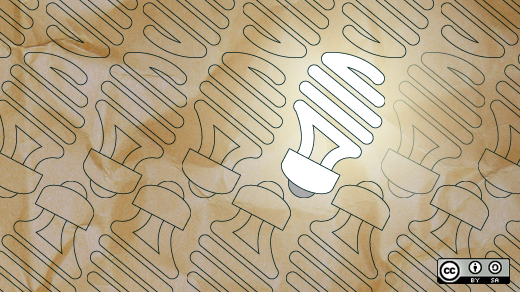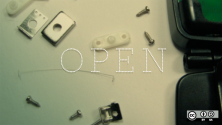 Open Source Bridge is coming up on June 21 in Portland, and you can catch the commotion ramping up on Twitter.
Open Source Bridge is coming up on June 21 in Portland, and you can catch the commotion ramping up on Twitter.
In this interview I talk with Shauna Gordon-McKeon about her involvement in the free software and free culture communities, her day job, and her upcoming talk Free culture in an expensive world.
Shauna is a programmer, researcher, and writer best known for her work at OpenHatch, where she was program director and helped connect the program with open source projects and contributors around the world. She has also been involved in research at MIT Media Lab, Harvard, UC Davis, and Nokia.

How did you get involved in free software and free culture communities?
I began getting involved in free culture when I joined an open government meetup group. There were nearly a hundred members, but no one had ever suggested a time and place to meet. I did so, and before long I was organizing the whole group. At about the same time, I joined a citizen science community in Boston. My background is in neuroscience, and I missed doing research and talking about science. Between these two communities, I met so many people and saw so many ways that people were applying principles of openness, collaboration, autonomy, and universal access to their work and their lives.
The wider term "free culture" has always been more meaningful to me than "free software." As a developer and user of software, I care strongly about FOSS. As a scientist and user of scientific research, I care about open science. As a citizen and activist, I care about government transparency. And as a consumer and creator of media, I care about fan communities.
There are so many ways of living out the values of free culture—I'm sure my involvement will continue to evolve.
What do you do for a living? How does that relate to your work in free software and free culture communities?
For the last few years, I've worked as a consultant doing web and mobile development, community development, and research for individuals and organizations. I prefer working with free software projects and nonprofits, though that hasn't always been possible.
The most widely known project I've worked on in the open source world is OpenHatch. My work there developing the Open Source Comes to Campus event series was a great opportunity for me not just to contribute to the FOSS community, but also to learn a great deal about the obstacles to involvement and how we as a community can help newcomers overcome them.
I recently decided to hang up my consulting hat—at least for a little while—and join an organization full time. Starting this summer I'll be a developer advocate at EdX, growing the community around their open source online education software.
You are widely known for your contributions to OpenHatch. What other work have you done that you are proud of?
As I mentioned above, I've spent some time volunteering in both the open government and open science communities. For a while, I was the editor and technical maintainer of the Open Science Collaboration Blog, a place for open science practitioners and advocates to write about their work. I also participated in a collaborative meta-science project called "Crowdstorming Research."
I tend to run workshops every couple of months. I can't seem to restrain myself. Deb Nicholson and I ran a workshop called SpinachCon ahead of LibrePlanet this year that helped free software projects do basic user and new contributor experience testing. I ran an introduction to testing workshop with PyLadies last month and an introduction to sprinting workshop at PyCon just this week.
I'm also a writer. I've spent the last several years working on a few different writing projects and I'm hoping to release most of them this year, so stay tuned.
Can you share a few things from your Open Source Bridge talk? Why is free culture an important topic?
Free culture in an expensive world is a talk about financial sustainability in FOSS. It's an important topic because so many vital free culture projects are languishing without the resources they need, and so many free culture advocates are struggling with burnout. Not to mention the people who never join our communities and the important projects that never get conceived of or carried out because the financial pressures are simply too great.
This is a thorny, controversial topic, and I don't have any great answers for how we as a community can proceed, but I'm hoping to define some of the issues and provide some ideas. This talk is just the beginning of my work on this topic. I'm also conducting a series of interviews with people about their experiences with funding free culture, a project that I expect will take at least six months, if not longer. My hope is to gather together information about what works and what doesn't, and the benefits and drawbacks of various approaches. We share so much knowledge as a community—why not also share knowledge about financial sustainability?
What advice would you offer to young women wanting to get involved in free software and free culture communities?
I'd offer young women the same advice as I'd offer anyone. The free software and free culture communities contains thousands of smaller communities focused on different projects and with different social norms. It may take a little while for you to find the people you click with and the communities you love, and that's okay. You don't need to accept a bad fit and you certainly don't need to accept any kind of abuse or harassment. There are places for you to flourish, and if you reach out to me I can try to help you find them.







2 Comments